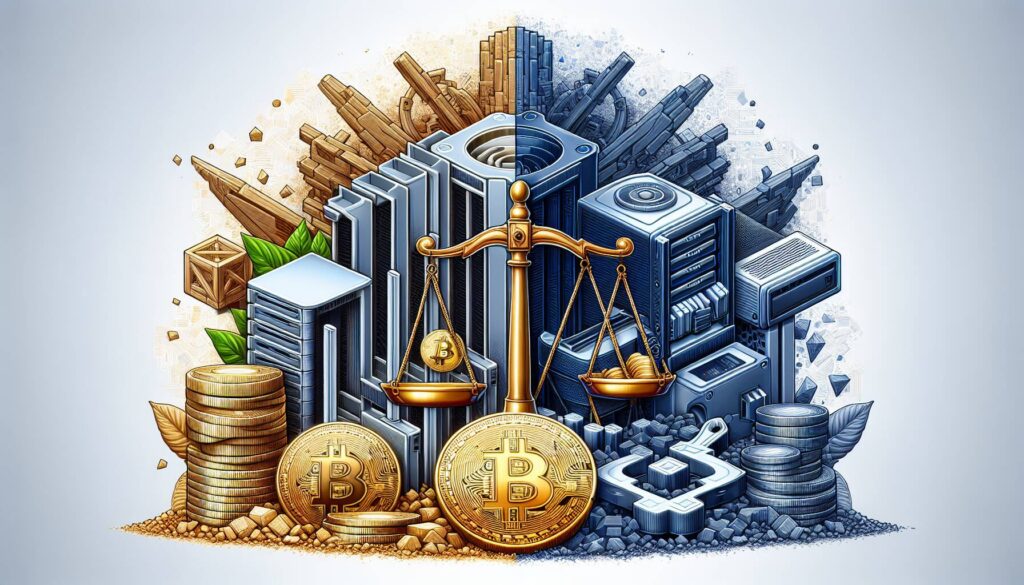The cryptocurrency landscape is once again in the spotlight as tensions rise over potential U.S. government involvement with digital currencies. The conversation ignited when former Commodity Futures Trading Commission (CFTC) Chair hinted that the idea of the U.S. stockpiling cryptocurrencies could convey a troubling message globally. This concern reflects a broader skepticism regarding the implications of a government strategically holding cryptocurrencies, particularly Bitcoin.
In a recent discussion, the ex-chair criticized the notion of a U.S. Bitcoin reserve, stating that it undermines the foundational principles of cryptocurrencies, which emphasize decentralization and independence. Highlighting the risks of such a move, he underscored the importance of maintaining a market free from government interference.
“A strategic Bitcoin reserve is plainly wrong and sends an awful message to the world,” the former CFTC Chair stated.
Meanwhile, the ongoing debate has prompted some industry voices, like TXMC, to voice their discontent, arguing that holding what they refer to as “shitcoins” is even more detrimental than a Bitcoin reserve. This perspective reveals fierce divisions within the crypto community about how government policies could shape the future of digital assets.
As discussions unfold, many observers are analyzing the necessity of tokens in the face of increased government influence. The juxtaposition of innovation and regulation continues to ignite controversy in the cryptocurrency space, raising pivotal questions about the future trajectory of digital currencies and their acceptance on the global stage.

The Implications of US Government Stockpiling Crypto
Exploring the ramifications of the US government potentially stockpiling cryptocurrencies and the opinions of financial leaders on the matter.
- Government Stockpiling Perception:
- The act of stockpiling cryptocurrencies might suggest a lack of confidence in traditional fiat currencies.
- This could lead to global market instability, impacting international relations.
- Criticism from Financial Leaders:
- Former CFTC Chair has labeled the Trump Memecoin initiative as ‘plainly wrong’, suggesting a misalignment with regulatory standards.
- Critics argue that government involvement could stifle innovation and market dynamics in the cryptocurrency ecosystem.
- Strategic Bitcoin Reserves:
- There is a debate on the necessity of a strategic Bitcoin reserve, with some experts arguing there’s no clear benefit.
- Proponents of reserves warn it could lead to a misallocation of resources and increased market manipulation.
- Impact on Investors:
- Investors may feel cautious if they perceive government intervention as a threat to market independence.
- Public trust could erode if the government appears to be favoring certain cryptocurrencies over others.
- Broader Economic Consequences:
- Shifts in cryptocurrency policies could influence stock market performance, economic stability, and consumer behavior.
- There are concerns regarding the classification of ‘shitcoins’ and potential losses in public investment.
The Implications of Government Cryptocurrency Stockpiling
The debate surrounding the U.S. government’s potential stockpiling of cryptocurrencies has ignited passionate discussions within financial and regulatory circles. Many viewpoints reveal competitive advantages and disadvantages that could shape the future landscape of cryptocurrency. For instance, former CFTC Chair Kevin Hassett argues that involving cryptocurrencies like memecoins in government strategy could send a troubling message globally, suggesting a disconnect between rigorous regulatory standards and speculative assets.
On one hand, such government involvement could legitimize cryptocurrencies, encouraging wider adoption among institutional investors and the public. This endorsement might strengthen the legitimacy and popularity of the crypto sector as a whole. Conversely, critics claim that stockpiling certain tokens, often dubbed “shitcoins,” might undermine the crypto space’s inherent value and instill uncertainty among users. This sentiment is echoed by TXMC, which highlights the pitfalls of a strategic Bitcoin reserve in juxtaposition with less reputable cryptocurrencies.
Stakeholders who could benefit from this scenario include regulatory bodies and traditional financial institutions, as clearer guidelines and involvement might pave the way for safer, more regulated investment opportunities. Additionally, genuine projects could see a boost in credibility through associations with government interests. However, those in the decentralized community might find themselves stifled, as government involvement could lead to overly restrictive regulations that stunt innovation and growth.
This heated discourse raises critical questions about the balance of power between government influence and the decentralized nature of cryptocurrencies. Existing challenges include the potential establishment of barriers for smaller projects seeking recognition, which could breed skepticism among the community. Ultimately, the path taken by the U.S. government in this complex landscape will play a vital role in defining the future of digital currencies.
















